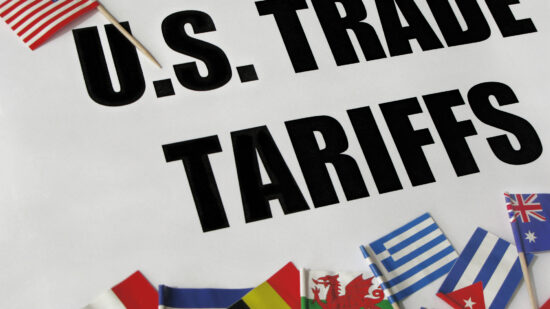Tariffs: How Construction Contractors Can Prepare for Pricing Uncertainty Ahead
NEW YORK—Here’s a new oxymoron worth jotting down. Certain Uncertainty. In the case of looming tariffs ahead—this could occur as early as March. Tariffs on steel and aluminum could do more than curb imports — they could also put the brakes on construction activity, according to ConstructionDive.
President Donald Trump signed executive orders on Feb. 10 implementing 25% tariffs on all steel and aluminum imports into the U.S., effective March 12. The move could have a harmful effect on project momentum, market observers told the news service.
“Pricing on construction and building projects will be greatly impacted by tariffs and will lead to some uncertainty,” noted Scott Damiecki, CPA, CCIFP and partner in the tax and advisory firm, CohnReznick.

“Increased material costs will likely drive-up overall cost of construction, which tends to decrease overall demand,” he said. “Sectors like commercial buildings, bridges and residential homes could be impacted. Data center work and manufacturing facilities may be insulated because of the sheer demand for those.”
Besides price increases, there could be material shortages and project disruptions, he added. “Projects could be put on hold, and overall demand for construction could decrease.”
Amid this uncertainty, contractors need to stay prepared with proactive communication and careful planning. Mr. Damiecki observed, “As construction industry leaders know, China, Mexico, and Canada are some of the largest sources of imported construction materials for the U.S., including steel, concrete, lumber, gypsum (used for drywall), asphalt binder (used in roads), switchgear, and much more.”
Here are eight ways contractors can be prepared for the uncertainty ahead, he advised:
• Research and identify construction material impacted by tariffs and assess potential impacts to your current and future projects.
• Review contracts and incorporate price escalation, changes in law, and force majeure clauses; consult your construction attorney.
• Review your upcoming purchase orders’ terms and conditions.
• Proactively communicate with clients about potential cost increases.
• Build a contingency into budgets to cover tariff-related cost increases.
• Diversify your suppliers, given potential shortages.
• Consider stockpiling certain materials.
• Consider the indirect costs that will be impacted by tariffs, such as the costs of gas/diesel, equipment, or vehicles.
To safeguard their operations, construction contractors need to stay informed about the evolving landscape in the administration’s actions as well as monitor the news and industry insights over the coming weeks, Mr. Damiecki stressed.
